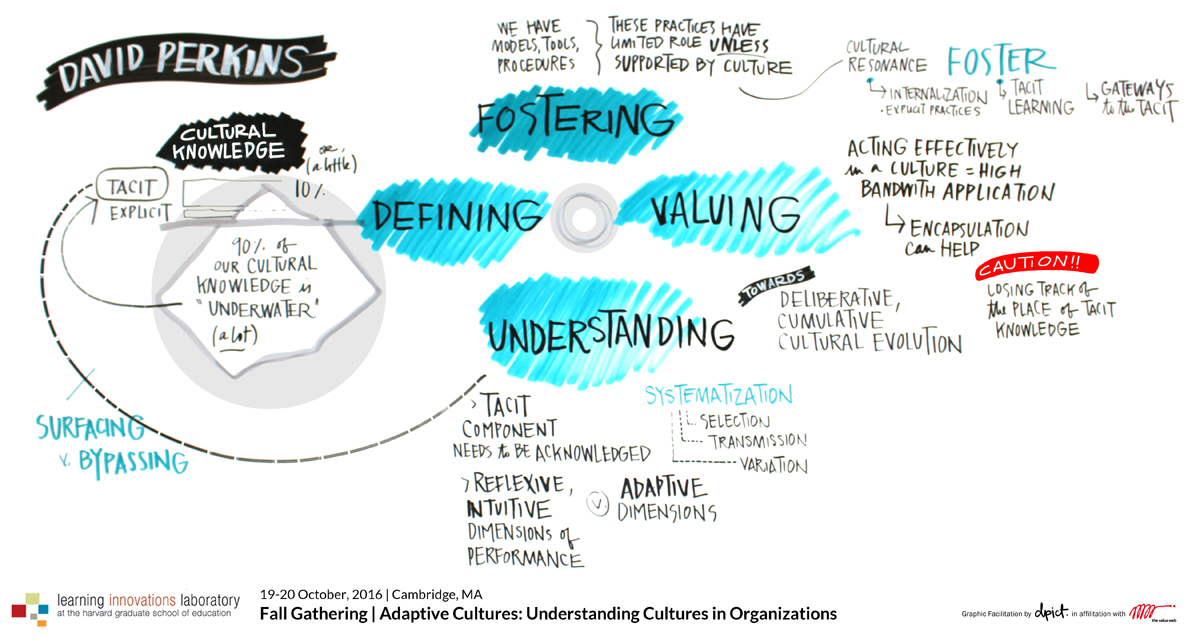As Dave Perkins shared prior to his synthesis, t his is not an attempt to summarize everything that the LILA community explored during the October 2016 gathering, rather it is a way a 64,000 view that might help advance our thinking on the topic.
his is not an attempt to summarize everything that the LILA community explored during the October 2016 gathering, rather it is a way a 64,000 view that might help advance our thinking on the topic.
Defining Adaptive Cultures
- Individual cultural knowledge is largely tacit – we don’t know what we know (we just behave)
- Iceberg: like the being roughly 90% under water, not knowing like this is not just limited to culture, but to all fluent knowledge (example of grammar, used implicitly)
- The 10% of explicit knowledge is very important to the human condition
Understanding Adaptive Cultures
- The tacit character of knowledge must be emphasized to understand how we function within a cultural context we’re familiar with
- We don’t know it by remember the knowledge and deploying it
- Performance is reflective and intuitive
- The moves we make (imitation), we often do them without understanding why
- Not all reflexive → we also Systematize Culture:
- Inheritance of knowledge: Education / Mentoring
- Selection: identifying critical variables and testing their differential influence
- Variation: rapid proto-typing
- We therefore get the benefit of these cultural toolkits, which are 90% tacit, but we can begin to grasp it better by surfacing more
Valuing Adaptive Cultures
- We encapsulate routines and hugely amplify our effective bandwidth, by submerging certain aspects of our awareness (–> leads to tacit knowledge)
- Copying, variation, and selection are automatic and intuitive, which make them something we can rely on
- The 10% of knowledge that we surface allows us to understand and re-direct
- Caution: Losing track of the place of the tacit and how we function in any area of our lives
Fostering Adaptive Cultures
- We have certain structures in place: formal education, the scientific method, rapid proto-typing, ideas, protocols, procedures, etc but these process only have an isolated role unless they’re supported by something broader
- They must be supported by a culture
- It’s not enough to just have research strategies and systems, the tacit knowledge is important, and they must be supported by the culture
- We must remember there are only a couple ways that knowledge becomes tacit:
- Internalization of self
- Tacit learning (like how we learn our Mother Tongue)
- If we want to be inclusive, adaptive cultures, we need to foster internalization f the explicit practices
- It isn’t enough to articulate principles – we must repeat, persist, developing processes
- As we design learning occasions, we must incorporate explicit learning and tacit learning from the get-go (combining the formal and informal learning)
- Remember that we must
- (1) take tacit knowledge seriously
- (2) have gateways to the tacit knowledge
- (3) foster internalization
- (4) foster tacit learning
To listen to Dave’s presentation click the follow link: Understanding Culture – the 64,000 foot view.
